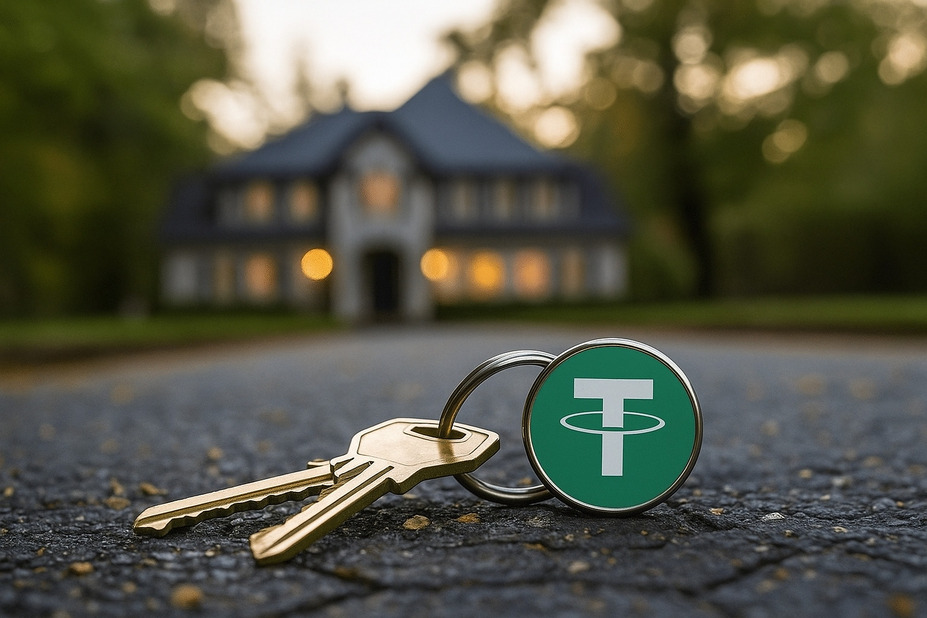Crypto holder to homeowner: Can digital assets unlock real estate riches?

Description
So, you’re riding the crypto wave? You might be wondering if it’s time to diversify your portfolio and dip your toes into the world of real estate. Good news: as a crypto investor, you’ve got options. You can use blockchain-based solutions to get real estate exposure, or you can take a more traditional approach. But first, you’ll need to know the basics.
Cryptocurrency and real estate are undeniably different beasts, each with its own unique investment characteristics. But as a crypto investor eyeing real estate, you have some interesting alternatives, and you might even be able to leverage the differences between these two asset classes to your advantage.
Ready to explore real estate for crypto investors? Let’s dive in.
In this article
- Crypto vs. Real Estate: A Head-to-Head Comparison
- 4 Ways to Invest in Real Estate Using Crypto
- The Pros and Cons of Real Estate Investing (for Crypto Holders)
What’s the deal with real estate investing for crypto investors?
When you think about real estate investing, does “landlord” immediately spring to mind? It might not be obvious, but you can actually invest in the real estate market using blockchain-based solutions.
Tokenized real estate investing adds a blockchain layer to traditional real estate investing. It allows investors to use digital payment methods, invest in properties in different countries, and participate through various ownership structures.
Blockchain’s versatility is creating new possibilities in real estate investment. It can improve transparency with public ledger technology and boost efficiency through smart contracts.
Crypto vs. real estate: a tale of two assets
Cryptocurrency and real estate have very different investment characteristics. In fact, their contrasts can provide unique benefits when combined in a portfolio.
Real estate brings key advantages in cash flow and stability, while cryptocurrencies can offer faster transaction times and lower entry costs.
Here’s a quick rundown of how crypto generally compares to real estate:
(Here you would insert the comparison table from the original article)
4 Ways to invest in real estate using crypto
If you want to use cryptocurrency or a blockchain platform to invest in real estate, you have several options. Let’s break them down:
The TL;DR is that you can:
- Directly purchase real estate using crypto
- Buy tokenized real estate
- Invest in real estate cryptocurrencies
- Stake your crypto to borrow and invest in real estate
1. Direct purchases using cryptocurrency
Believe it or not, you can buy property directly with cryptocurrency, both in the U.S. and internationally. Of course, the seller has to be willing to accept digital currency and have a compatible digital wallet.
Using crypto to buy real estate in the U.S. may affect your access to financing. You generally can’t use crypto for a property’s down payment, but fintech lending platforms are emerging to allow you to collateralize traditional down payment loans with crypto. Platforms like Milo offer crypto-collateralized mortgages.
Buying real estate with crypto internationally can have some unique perks. In some countries, like Montenegro and St. Kitts, owning real estate can grant you residency or even citizenship. St. Kitts, in particular, is known for being crypto-friendly, with Bitcoin ATMs all over and no capital gains taxes on investments, including cryptocurrency.
Keep in mind that buying real estate with cryptocurrency directly can trigger tax consequences, regardless of where the property is located. Sales and transfers of digital assets are generally taxable events.
2. Tokenized real estate
Another option is to purchase blockchain-based real estate tokens. You can choose specific token investments that correspond to specific properties and fund those purchases with either digital money or traditional currencies. Owning real estate tokens gives you direct ownership of real estate, and you can usually trade or sell your tokens with few restrictions.
Tokenized real estate is often fractionalized, with each token representing a fraction of the property’s ownership. This can make real estate accessible to more investors.
The tokenization of real estate brings the typical benefits of blockchain technology – efficiency, transparency, and security – to fractionalized real estate investing. Platforms like HoneyBricks can also support liquid secondary markets, which may boost the overall value of the real estate sector.
(Here you would insert the table illustrating the benefits of tokenized real estate)
3. Cryptocurrencies with a real estate focus
You can also add real estate exposure to your crypto portfolio by purchasing cryptocurrencies that are focused on the real estate industry. You can buy coins that are already in circulation, or invest in coins that are about to be released (often through an initial coin offering, or ICO).
Many new cryptocurrencies are using different strategies to profit from real estate. Here are a few examples:
- Propy: Focused on solving the problems of international real estate transactions by creating a unified property store and asset transfer platform for the global real estate industry.
- RET: This cryptocurrency supports a decentralized rental platform, enabling peer-to-peer transactions for commercial and residential real estate.
- Quarteria: This cryptocurrency supports a decentralized database for international and domestic real estate listings, democratically controlled by buyers and sellers.
4. Stake Your crypto to borrow and invest in real estate
If you already have crypto assets, you can borrow against them to invest in real estate. Many centralized and decentralized finance companies offer this service. You essentially post your crypto as collateral for a new loan.
Centralized platforms typically use a third-party custodian to hold the assets as collateral, while decentralized platforms use smart contracts to govern the transaction with code.
This method is best used with stable cryptocurrencies or with low levels of leverage to avoid the risk of a margin call. A margin call happens when the loan-to-value ratio deviates from the target setting.
For example: If the market value of your crypto portfolio drops by 50%, while the loan amount stays the same, the loan-to-value ratio doubles.
This adds risk to the lender, as they may not be able to recover the full value of their loan if you default. In the event of a margin call, you’ll be asked to post additional collateral. If you don’t, the lender can liquidate your portfolio and charge penalties or fees.
Two unique benefits of blockchain-based lending are the transparent ledger that shows all transactions and borrowing levels, and the use of smart contracts that automate margin calls and liquidations.
Pros and cons of real estate investing for crypto investors
Investing in real estate using cryptocurrency or blockchain solutions has both benefits and drawbacks.
Here’s a quick rundown of the pros and cons:
Pros
- Integration with blockchain technology: More efficient, transparent, and secure property deals.
- Access to fractionalized offerings: Lower capital requirements and easier diversification.
- Potential residency or citizenship opportunities: Crypto-friendly countries like St. Kitts may be especially appealing.
- Generate passive income: Unlike buying a property directly, investing in tokenized real estate allows you to generate passive income from rental distributions without needing to be a landlord
Cons
- Accepting crypto is voluntary: Sellers aren’t obligated to accept cryptocurrency.
- Investor accreditation may be required: Some platforms require investors to meet certain income or net worth requirements.
- Potential for tax consequences: Buying real estate with crypto can have tax implications.
Should you invest in real estate?
Real estate investing is a tried-and-true asset class. Diversifying your crypto investments into real estate can provide cash flow, stability, and diversification.
Both crypto and real estate investing come with risks, and you should carefully evaluate any investment opportunity. Do your research and start small until you’re comfortable with the real estate sector.












